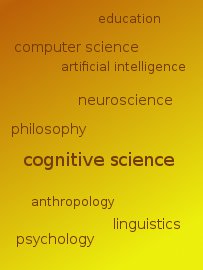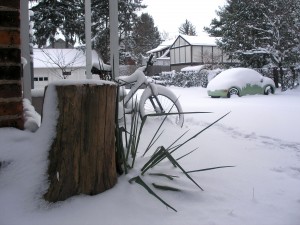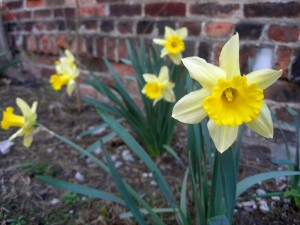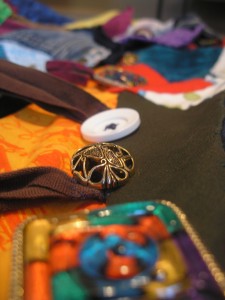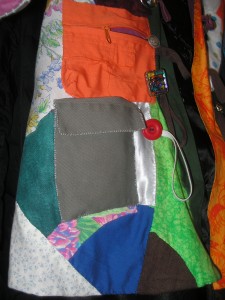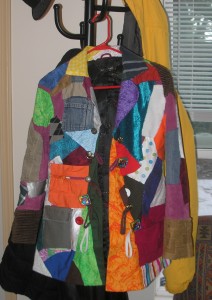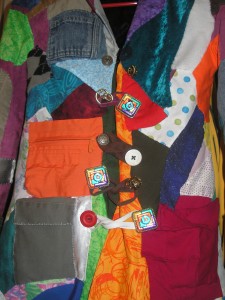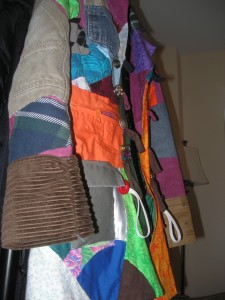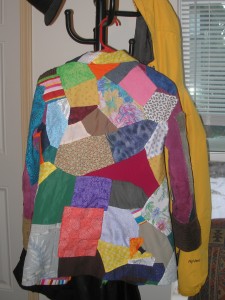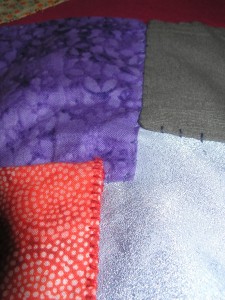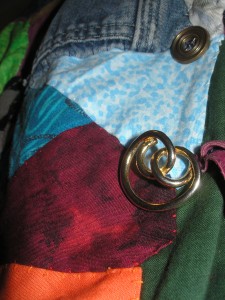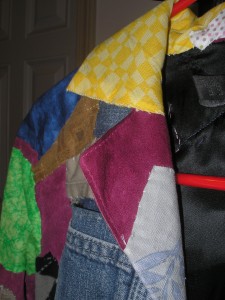What are you doing?
A feeling common among senior undergraduates (and senior high school students, and junior undergrads, etc) is the your-life's-about-to-start-what-are-you-going-to-do pressure. The common questions one faces include but are not limited to: What are you doing post-college? Are you getting a job? Where are you going to live? What about grad school? Will you stay in academia? What about high-paying tech/business/etc jobs?

Surprise: That feeling of uncertainty doesn't always go away after graduation, or even after a year. Probably not even after five, but I haven't gotten that far yet. I may be more on track than some. I've set my sights on a career in science and research, the next step of which will, for me, be grad school. But I'm sure I'm more uncertain than others.
So, from a student who's been there, here are some thoughts on...
College, Internships, and Figuring Out You Want To Do With Your Life
You already know that there are a lot of questions to answer.
For example:
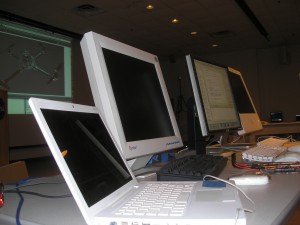
If you're considering a STEM career, like me, then a lot of people will say you have two options -- academia or industry. Even before you try to tackle which of these you might like, though, you may need to figure out what specific area you want to enter -- if you're a computer scientist, would you want to develop algorithms? Would you rather work on security applications, or distributed networks, or use your CS knowledge to program laser space robots, or any of thousands of other options?
Some programs of study prepare you for specific careers; others leave you with a remarkably open-ended future.
So... how might you even start figuring out your life?
The most important thing to know
You do not have to do the same thing forever.
That's important, so I'll say it again:
You do not have to do the same thing forever.
If you pick a career direction now, you aren't stuck with it for the next forty years. People change jobs. People change careers. I had a particularly good role model in this regard: my father has owned a sailing school, consulted for small businesses, recorded punk bands, and then there was this thing in Africa... Point is, you can do whatever cool things you want. You don't have to do the same thing forever.
Granted, knowing that you can do something else later doesn't necessarily help at all with figuring out what to do now. On to the next section:
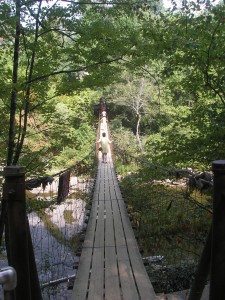
The "Figure My Life Out" Toolkit
Your two best resources are
- yourself
- other people
By this, I mean that you should (1) try new things as a way of figuring out what kinds of things you like doing, and you should (2) talk to other people about their experiences in doing different kinds of things. Gather information about what makes you happy, what kind of work you find worthwhile, what kind of jobs sound just plain cool, and so on.
Try new things
There are several ways to proceed.
Three of my favorites:
1. Classes.
The reason I took my first computer science class was because one day, I looked at my laptop and thought to myself, I don't know how you work at all. I signed up for CS101, vaguely hoping that I'd learn something about the Magical Innards of Computers. I didn't -- instead, I learned some Magical Incantations and Rituals for making little Java applications. I also learned that programming was fun, and that I'd probably enjoy further classes in that area. Now? The graduate program I'm entering has a heavy CS component, and most of the other programs I'd applied to were CS programs.
The point of this story: Take classes in novel areas. Either in person, at school, or via one of the increasing number of free online courses. It's one of the best ways to explore new subjects. If, after the first couple class sessions, you really hate it? Drop the class. It's worthwhile to remember that you may love a subject but dislike a professor, or love a professor enough to make any subject taught interesting. Regardless, it's a nice, easy, safe way to explore new stuff. You never know what you might find.
2. Independent learning.
My personal favorite here is reading books on all sorts of cool non-fiction topics. Pick up a book at the library on a topic you know nothing about, read it, see if it interests you. Other options include taking free online courses (see point 1), joining clubs to try out new activities, volunteering for new programs, ... lots of potential here. Spend time thinking about what activities you find worthwhile and important -- helping people or animals in need? Engineering solutions to problems in the world? Making a lot of money so you can live the life you want?
3. Internships etc.
The best time for this, if you're in school, is those warm summer months between semesters. Summer internships. Summer research programs. If you're interested in cognitive science or computer science, I have a fantastic list of resources for you. A lot of Research Experience for Undergraduates (REU) programs exist across the sciences; lots of government agencies and national labs have programs as well, not to mention a myriad of companies!
Semesters are good, too: A relative of mine took a semester off for the NASA USRP program; friends have spent semesters interning at or just plain working for software companies. You don't have to leave school, though -- while studying abroad, I nabbed an internship in a psychology research lab as a part of Sydney Uni's Study Abroad Internship Program. Many schools have field work programs or internship programs -- does yours?
Two pieces of Important Advice:
Don't do the same thing every summer
and
It's okay if you don't like your internship/job/field work/etc.
Spend a summer or two doing research on a university campus. See what it's like working in at a government facility. Try out an internship with a company. Test out different environments and see what you like. See what you don't like. Discovering that you don't like some particular kind of work is as helpful -- if not more so! -- than finding that you do like something. You'll be able to rule out jobs that make you do that.
I admit, I didn't strictly follow this advice. I spent two summers on a research project at my home college, then two summers at different NASA facilities -- again, research projects, not with a company. I dabbled in research during semesters as well.
What I did do, however, was vary the kind of research I was exposed to. Working on autonomous learning in robots at Vassar was science; the laser space robots at NASA last summer and the Autonomous Vehicle Lab the summer prior were very much engineering projects. The emotions group I work with now, among others, exposed me to psychology and cognitive science research methods.
... okay, so that's all well and good. How do you actually find a good internship opportunity?
Google is your best friend. So are people you know -- see the following section. I've been invited to apply, but I've also spent weeks or months searching online for intriguing opportunities. Search for lists of internships (e.g., in cognitive science and computer science) or lists of databases of internships, and search all these. If your university has a Career Development Office or the like, go talk to them; they have even more resources.
My advice: Start early. Deadlines for summer internship applications tend to be in January and February; sometimes, they may be as late as March or as early as October. You'll need time to find the opportunities to apply for, and you'll need time to collect the materials (such as an updated resume) for your application.
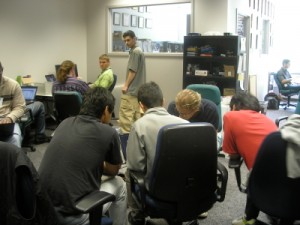
Talk to people
This point sounds relatively straightfoward. Okay, have conversations with people. But there are several ways to get the most out of those conversations...
1. Listen to advice.
You know all those other people who want to give you advice? Let them. These people may be your grandparents, your professors, other relatives, older students, current professionals ... anyone, really. Let them talk. Listen to what they all have to say. You don't have to take their advice -- not a word of it -- but now and then, they say useful things. And you won't hear those useful things unless you're listening.
2. Use your resources wisely.
You probably know a lot of people. These people probably know a lot of people. Some of those people might be working jobs you're interested in. Some of those people might know people who are looking for people to work for them. Get the gist?
A further couple points:
Tell people what you're looking for. If they don't know, they can't help you or hook you up with opportunities they find.
If you're in school, your school probably has a Career Development Office or the like. Talk to the people there. Tell them what you're hoping to find -- whether it's a specific internship, information about a particular field, or just that you're hopelessly confused and would like their help. They have resources for you. It's their job to have resources for you.
See if you can set up informational interviews with people in fields you might be interested in, to get the scoop on what it's like to work that kind of job.
Attend job fairs -- a lot of schools host them; does yours? -- and even if you're not looking for any particular job yet, it's a great opportunity to talk to recruiters about the kinds of jobs out there.
3. Ask a whole bunch of questions.
The best thing to remember is that, in general, people really like talking about themselves. Use this to your advantage. Even simple questions like "So, what's your job like?" and "Can you tell me more about what it's like to do X?" can lead to worthwhile information.
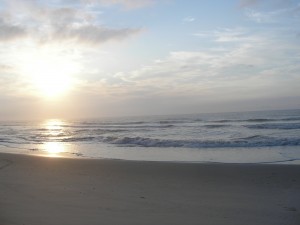
Then what?
The next step is pretty simple. (Do recall, simple does not necessarily mean easy.)
You've learned about your options. You've learned about what you like doing. You've learned about what you find worthwhile. It's time to stop evaluating possible directions to go in and actually go in a direction.
Maybe now, you know exactly what you want to do with your life. Great -- do that! Or maybe now you've concluded that no job will ever make you content. That one's a bit tougher. Try to find something at least tolerable, or, like some people joke, marry rich? Or maybe you like everything, and the sheer number of options is still overwhelming. Your best option here: find a reasonable job in a reasonable location near people you like. Go in some direction, at least for a while. If you love it, great. If you don't, move on.
Still have questions? Post a comment below! Maybe I, or someone else, will have helpful advice for you specifically.
And no matter what, remember: You don't have to do the same thing forever.





